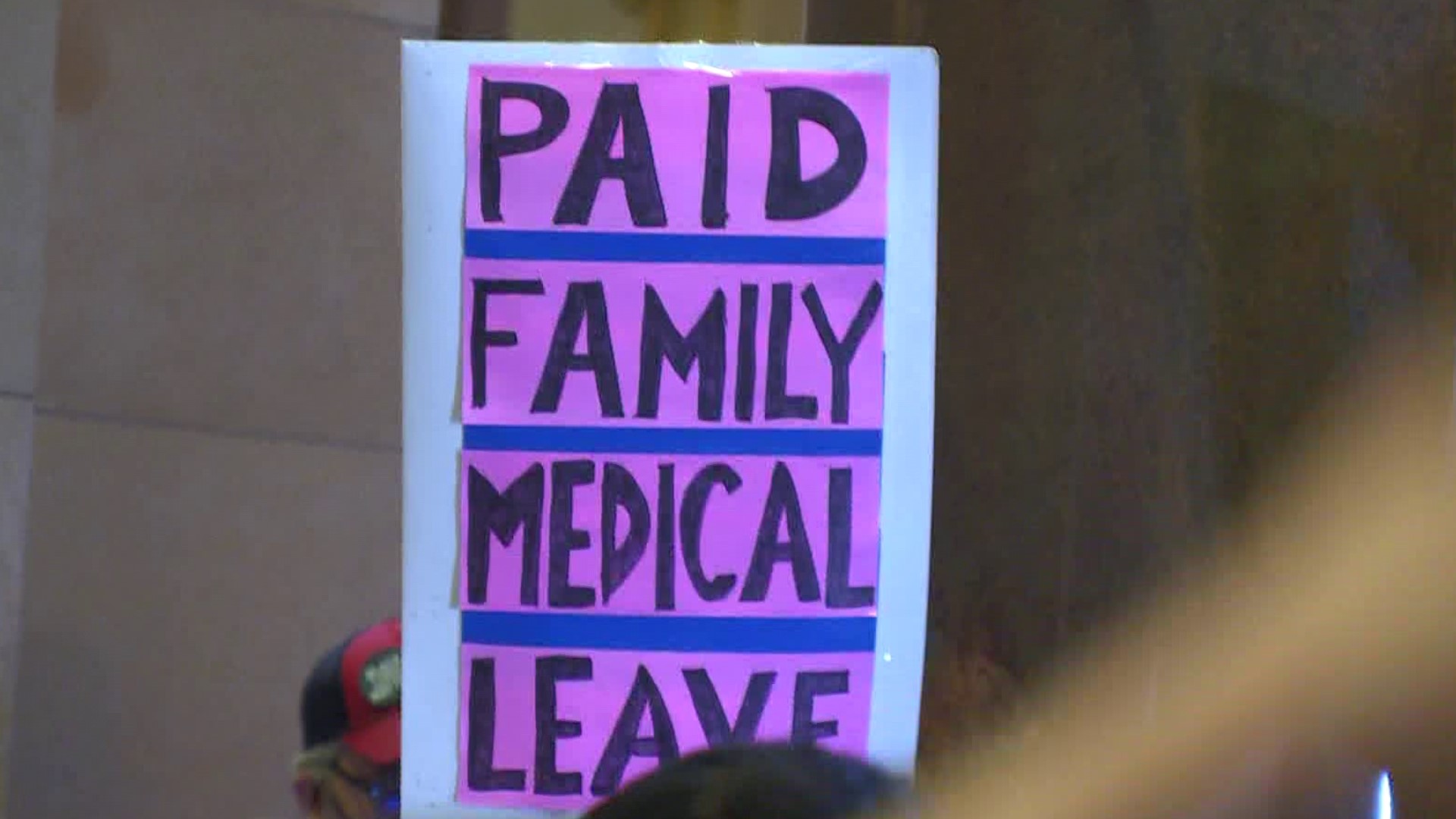ST PAUL, Minn. — The Minnesota House Tuesday night passed a bill that has been nine years in the making, aimed at setting up a state-run paid family and medical leave program.
The legislation is such a high priority for the DFL majority that introduced as House File 2, second only the reproductive rights bill signed into law by Gov. Walz earlier this session.
The system would work like the state's existing unemployment insurance program, and like that it would be operated by DEED -- the Minnesota Department of Employment and Economic Development. Employers and employees would contribute to a statewide pool that would be used to deliver partial pay to workers on leave.
"At the foundation of this bill is a recognition of our shared humanity," Rep. Ruth Richardson, the Mendota Democrat who served as the lead author of the bill, told reporters.
"At some point, we all are going to need time to either care for ourselves or to care for a loved one. I'm excited to move Minnesota forward with an inclusive system that takes into account all folks, including those who have historically been left out of paid family medical leave programs -- women, people of color, people in rural areas."
The bill passed on a tally of 68 to 64 after hours of debate. In the end, 68 Democrats voted for it, while two Democrats from Greater Minnesota joined 62 Republicans in the opposition column.
The plan calls for a 0.7 percent premium, or payroll tax, on earnings up to $160,000 per year. Employers would be required to cover at least 50% of that premium, or 0.35 percent, while employees would pay the other half.
The House bill would allow employees up to 12 weeks of paid medical leave and/or up to 12 weeks of paid family leave, with total benefits capped at 18 weeks per year.
The bill calls for the state to $600 million of the $17 billion surplus as seed money to get the fund started, and the program would begin in 2025 after the state creates a system to run it.
Republicans spent hours Monday trying in to talk Democrats out of the plan, saying it will ultimately place a burden on businesses and public employers, and drive more entrepreneurs out of the state.
"This tax increase, this mandate as proposed in the DFL bill, would be on every aspect of industry," Republican House Minority Leader Lisa Demuth told reporters.
"That would be private employers, cities, counties, school districts. And it could decimate them. At a time when there is a teacher shortage, this would increase that teacher shortage."
Republicans say they don't trust the state to build a system that will be user friendly for those taking leave. They believe private market solutions would provide better customers service, without the need for building a new state system.
They prefer giving tax incentives to employers who voluntarily provide paid leave to employees through the private insurance market.
"Small businesses like mine could get tax credits to incentivize me to include a program for my employees. That's what we're looking for, something where we're not mandated to belong," Rep. Dave Baker, a Willmar Republican and business owner, explained.
"One size fits all is not going to work."
The bill allows DEED to reduced quarterly premiums for companies with fewer than 30 employers. The agency would also be allowed to issue grants ranging from $3,000 to $5,000 to help businesses with fewer than 50 employees defray part of the cost of hiring replacement workers while an employee's on paid leave.
The GOP alternative plan envisions that employees could also band together and buy into the paid family leave program that state government employees currently use.
The legislation hasn't passed yet in the Senate, where Democrats hold a slim one-seat majority. But earlier Monday Gov. Walz predicted the legislation will arrived on his desk before the 2023 Session ends May 22.
"We know the 12 states that have it see increased loyalty to the companies they work for, we see increased productivity. Here in Minnesota, we’re going to add our names to that."
Democrats first proposed the legislation in 2014, but the DFL trifecta -- control of the governor's office and both chambers of the legislature -- have given supporters hope that this will be the year it becomes reality.
Most of the state's business groups have opposed the legislation, including the MN Chamber of Commerce, which issued this statement Tuesday night:
“States that have implemented massive, state-run paid leave plans have experienced more population loss than growth. We should be taking steps to make our state more competitive for talent and investment, not less.”
The ISAIAH interfaith alliance and a cadre of small business owners organized under the banner of the Main Street Alliance have supported the idea.
One of them is Sarah Piepenburg, who own an artisanal olive oil and vinegar shop in southwest Minneapolis with her husband. She said the couple was pushed to the limit financially when they kept paying an employee who suffered serious injury away from work.
"We paid her while she was out because it was the right thing to do. Paying her saved me money in having to hire and train a new employee, but caused use to be late on our commercial rent and our house payment."
The employee came back even stronger and more loyal to the company, but the experience left Piepenburg looking for a better way for small employers to provide paid leave.
Watch more Minnesota politics:
Watch the latest political coverage from the Land of 10,000 Lakes in our YouTube playlist:

